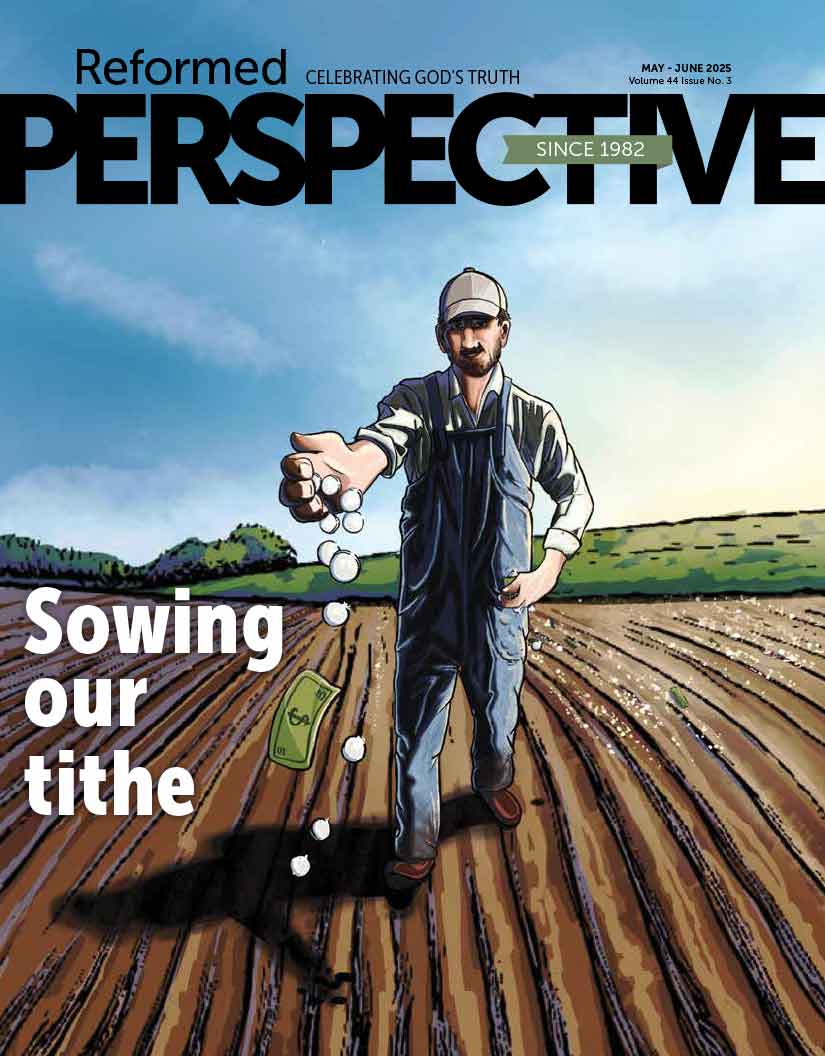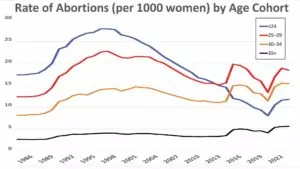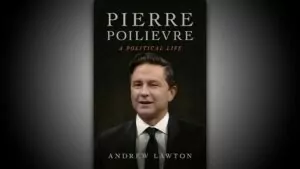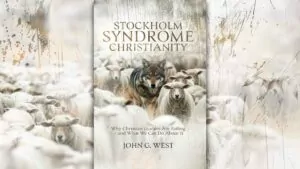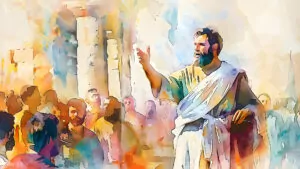The Regulative Principle and church lockdowns
Returning to gathered worship is of vital importance
***
“All of Manitoba moves to CRITICAL (RED) on #restartMB pandemic response system”
So declares a press statement from the Government of Manitoba. With those twelve words, Christians in Manitoba are once again being plunged into the murky realm of “virtual worship.” For several months in early 2020 a full lockdown was mandated in the province and churches there were forbidden to open their doors. Now, once again, “religious and cultural gatherings must close or be provided virtually only,” states the government release. The dark, cold months of winter promise only a long, exhausting lockdown for our fellow believers in that province. British Columbia even more recently followed suit, with their provincial health officer declaring: “In-person religious gatherings and worship services are suspended under the order.” By every indication, the rest of the country may not be far behind.
The COVID-19 crisis has created a tension between principles. We know we are called to love our neighbor and submit to the government on the one hand, but on the other, we know that we are also called to gather together for worship, and called to provide spiritual, physical, and mental care for our neighbor. I can’t think of a recent issue affecting the Church that has brought such polarized responses from within the Reformed community, and within individual congregations themselves.
Christians raise their children on stories of the brave martyrs who gave their lives to worship the one true God. Were the State to say, “you may not hold services because of your religious beliefs,” Christians would be unanimous in agreeing that we should disobey such a regulation – it would be unjust and unbiblical. Were the State to raise up a golden calf and call on us to bow down, we would be similarly clear and decisive.
How then should we live in a time of pandemic? What is the relationship between the Church and the State in a time of pandemic? The answer doesn’t seem to be as simple today.
Questions we need answered
Theological issues and questions raised only in church history class have now become everyday considerations. Manitoba’s “Critical Red” stage is forcing churches to close. British Columbia has now enacted policies curbing social interaction outside of households and suspended in-person worship services. Each provincial government, and even every municipal government, has different regulations: mask bylaws, maximum church gathering limits, bans on singing in church, restrictions on the sacraments, restrictions on the life of the church and its work through catechism classes, youth groups, men’s and women’s societies, Bible studies, ministries to the poor, to the elderly and more. Never in my lifetime has the hand of the State reached so far into the life of the Church.
The Regulative Principle of Worship
In the face of the COVID-19 lockdowns, many have chosen to hold corporate worship via some sort of online live-streaming video. In most provinces, this means a skeleton crew is present in the church. This might include the pastor, a sound and video technician, and either someone playing music or a recording to facilitate singing. The rest of the congregation is at home, either alone, or with their family watching this service.
So what should we think of this form of worship service? To best answer that question we should look back at what, historically, we have understood worship to be.
Along with some other Protestant denominations, Reformed churches have held to some form of the “Regulative Principle of Worship.” That principle extends from an interpretation of the second commandment and it stipulates that only those things prescribed in God’s Word are to be part of worship. The Bible explicitly calls Christians to worship and to gather physically for worship services (Hebrews 10:24-25; 1 Corinthians 16:1-2; Colossians 3:16; Acts 2:1; Acts 4:31; Acts 20:7; 1 Corinthians 5:4; 1 Corinthians 11:18–34). Worship is to include singing, the reading of the Word of God, sacraments, the preaching of the gospel, and corporate prayers. The principle also stipulates that things not prescribed are not permitted. This is distinct from the way many other denominations worship, both Catholic and many mainline Protestant churches. For them, anything that has not been forbidden in Scripture may be permissible, particularly as it relates to church tradition.
This Regulative Principle extends from the following statements of faith:
Belgic Confession: “… we reject all human inventions, and all laws which man would introduce into the worship of God, thereby to bind and compel the conscience in any manner whatever. Therefore, we admit only of that which tends to nourish and preserve concord and unity, and to keep all men in obedience to God” (Art. 32).
Heidelberg Catechism: “Q: What does God require in the second commandment? A: That we in no wise make any image of God, nor worship him in any other way than he has commanded us in his Word.” (Q&A 96)
Westminster Confession: “But the acceptable way of worshipping the true God is instituted by himself, and so limited to his own revealed will, that he may not be worshipped according to the imaginations and devices of men, or the suggestions of Satan, under any visible representations or any other way not prescribed in the Holy Scripture” (21.1).
The Reformed understanding of Scripture has historically been opposed to worship services that include an aspect of “performance.” In response to the Reformation and the “priesthood of all believers,” Reformed denominations have tended to resist musical presentations, choirs, bands, and more. The focus has always been on facilitating worship for the corporate body. The congregation is there to partake, to engage in all the acts of worship, not just to sit by and observe.
In fact, Reformed liturgy is commonly laid out in the form of a conversation between God and His people. God gives a blessing, the people respond with singing, God’s Word is read, the people respond in prayer, the offering is taken, and so on.
Two possible responses
So, if we consider the Regulative Principle, how should we evaluate COVID-caused online worship? The response from Reformed churches, so far, seems to fall into two camps: those who see virtual worship services as an acceptable replacement for corporate worship, and those who do not.
Response 1: Virtual worship is valid corporate worship
One could argue that live-streaming is better than nothing. Due to the emergency lockdown, it is simply not possible to hold corporate worship, and the believers cannot gather together, and yet via live-streaming we are praying and hearing the Word of God preached. We can gather as families and sing at the same time as the many other families in our congregation. We can give our offerings via email transfer.
Many Reformed churches have provided church telephone and live-stream accessibility options for decades. Those beloved members who are subject to disability or the impact of old age can still join us in hearing the Word preached, and partake in aspects of the service they would otherwise have no access to. These technologies are a blessing that the church hasn’t had before, and we should be thankful.
Response 2: Live-streams are not the same as corporate worship
While this technology is a blessing to those who are unable to attend church, as well as a means to provide excellent content online, there are reasons why joining church via live-stream was never considered the same as attending in person. Those reasons remain even in the midst of a pandemic. Worshiping in this manner allows believers to avoid the sometimes-messy reality of church family: the coming together of people of all ages and types, in a shared bond of faith in Christ. It also removes the accountability of membership. And it raises all sorts of questions. What message does virtual worship give our church members about the value of being present in person? Couldn’t members join from a vacation spot in the future, or from home if they don’t want to drive in to church? Can someone be part of the worship service by watching it three hours later? Or is it only in watching simultaneously? What if there’s a 30-second lag, and each individual device buffers differently as there is? We’re certainly not all singing together in unison! Can someone in Europe join our services weekly by live-stream? If so, can they become a member of the church?
The Regulative Principle that teaches us puppet shows are not a substitute for opening the Word also teaches us that virtual services are no substitute for corporate worship.
The in-person (embodied) nature of worship
The passage at the heart of many of the COVID-19 related discussions is Hebrews 10:24-25.
“And let us consider how to stir up one another to love and good works, not neglecting to meet together, as is the habit of some, but encouraging one another, and all the more as you see the Day drawing near.”
Being “together” is the essential element of the author’s directive here. Stirring one another up to love and good works and encouraging one another is an aspect of being together.
The physical gathering of the church together is connected to the doctrine of the resurrection. Around the time I first drafted this article in April, the Ezra Institute released an excellent article that raised this point that I want to quote here:
It is an unscriptural theology of creation and incarnation that believes the body of Christ can exist and function equally well in an abstract digital world, reducing the Lord’s Table to relative unimportance, and the preached Word to a “talk” just as effectively delivered digitally via pre-recorded video or live feed. Such an idea is a modern form of Docetism, the heretical belief that Christ merely took on the appearance of humanity, and that his human form was an illusion. If these things were even partially true, Jesus’ suffering, death, and bodily resurrection would be unnecessary and meaningless, and person-to-person contact where believers are gathered in Christ’s name would become optional for Christians.
I fear that, in readily accepting the validity of virtual worship, we are releasing hold on a central tenet of the Christian faith. The idea of eternal disembodied spirits living forever is not unique. The Romans, Greeks, Chinese, Arabs, Midianites, Cushites – in fact almost every people group throughout history – have shared this belief. The Egyptians built their massive pyramids thousands of years ago based on this belief.
What is stunningly radical about the Christian faith is the embodied, physical resurrection of Christ from the tomb. This is the wonder, and the counter-cultural nature of our faith. We worship our risen Lord each Sunday morning! We do not worship a disembodied soul. Crucially then, we are not called to worship as disembodied congregations – no, we worship Him in body and in spirit! And we will for eternity.
“For I delivered to you as of first importance what I also received: that Christ died for our sins in accordance with the Scriptures, that he was buried, and that he was raised on the third day in accordance with the Scriptures…Now if Christ is proclaimed as raised from the dead, how can some of you say there is no resurrection from the dead? But if there is no resurrection of the dead, then not even Christ has been raised. And if Christ has not been raised, then our preaching is in vain and your faith is in vain.” – 1 Corinthians 15:3-4; 12-14
Practically, this has implications for the liturgy and sacraments of worship. The direct result of misunderstanding this biblical truth by choosing to not be physically present means we cannot partake in the Lord’s supper, baptism, offering of tithes, the ordination of elders and deacons and more. Disembodied “virtual worship” must not be viewed as a valid replacement for in-person corporate worship.
Implications for political action
There are more questions for us to consider. If we cannot return to church for months, what happens to the congregation in the meantime? Can the church remain intact after a long period apart? How does the church leadership maintain the faithfulness of the body if corporate worship is banned?
The central concern I am trying to raise is this: in becoming comfortable with the technological means, have we been giving too much leeway to the State to dictate what may or may not be done in worship? Through the months of lockdown, here in Ontario, we became used to live-stream services. We watched our pastor on a flat screen, and he couldn’t see back. Indeed, the statistics show that many churches became so comfortable they have never returned from virtual services even when restrictions eased – their buildings remain closed and empty.
If instead, we believe that total lockdown means the end of corporate worship, how would that change our response? If we recognize that corporate worship cannot be done virtually, there will be a higher urgency to our interaction with the State. Could we then continue complying without concern? I believe that if total lockdowns return our way, as they are in Manitoba and BC, then political action in response to our government is necessary.
The time has come for us to engage with our governments. We need to act to show that we will not sit by when it comes to the restriction of embodied worship of our risen, embodied Saviour. If we view our gathering together as essential to corporate worship, then it is not a matter of convenience where technology can substitute at any time. Corporate worship is essential. We can’t expect our secular governments to understand that – we are the ones who must tell them. And, like the widow of Luke 18:1-8, we must do so insistently.
“And let us consider how to stir up one another to love and good works, not neglecting to meet together.” Hebrews 10:24-25 (ESV)...









